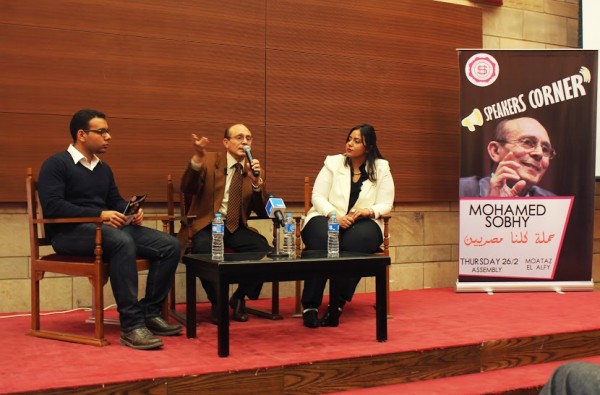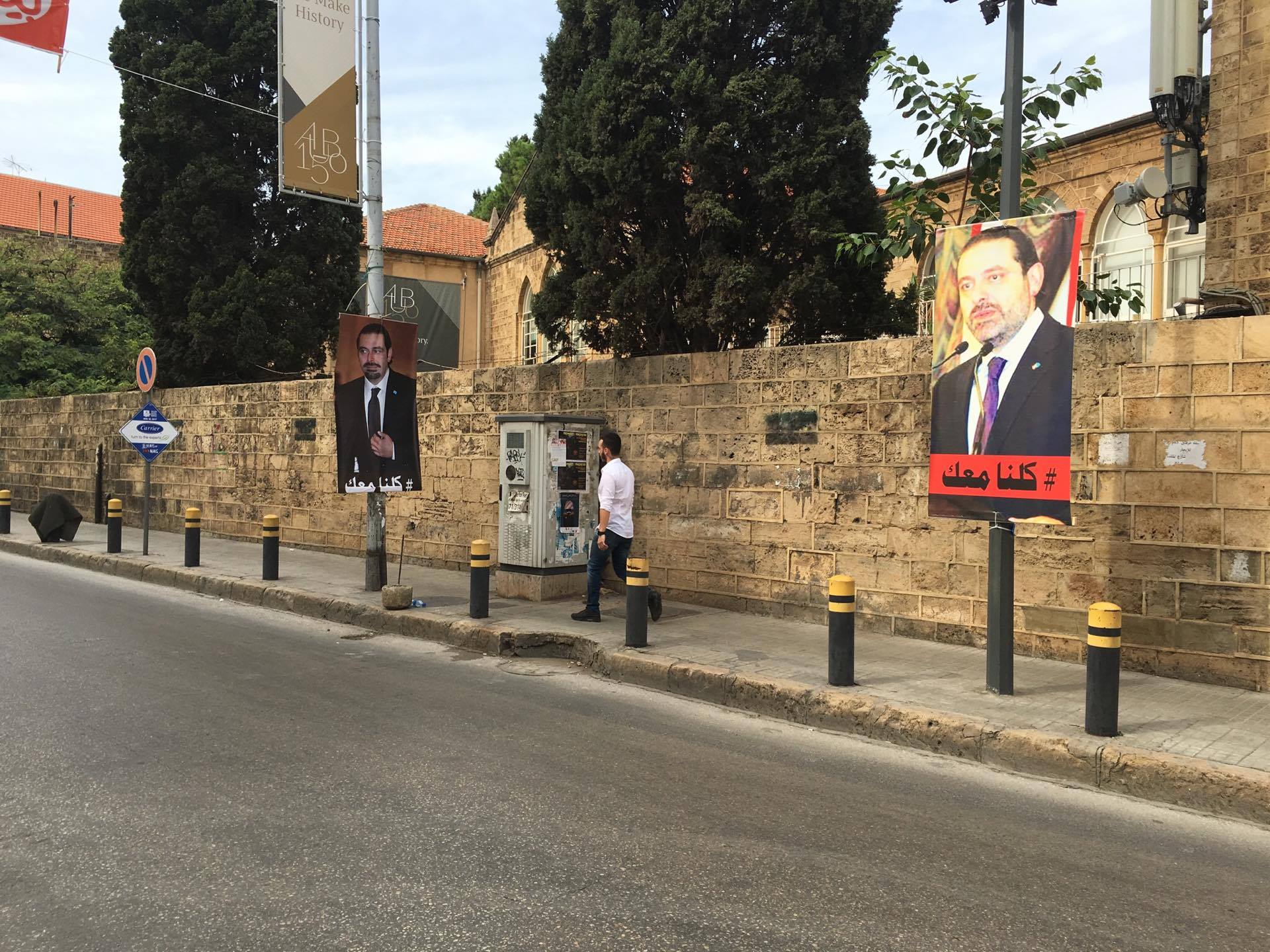Israeli Apartheid Week Questions Narratives of the Nakba
By: Dina Eid
@TheRealDinaEid
Among the various misconceptions surrounding the Palestinian-Israeli conflict is the notion that the Palestinians “sold their land” during the Nakba (The Catastrophe) of 1948.
As part of the second annual Israeli Apartheid Week, Mohamed Yehia, former instructor of Palestinian Literature at Cairo Institute of Liberate Arts and Sciences (CILAS), gave a panel discussion on March 27.
Yehia discussed the origins and dangers of the myth that Palestinians sold their land to the Jewish State, as well as provide facts to neutralize its effect.
According to Yehia, the claim that Palestinians sold their land did not originate from the Israeli state, but was rather propagated by the Egyptian government following the signing of the Camp David Accords in 1978.
Egypt generated this myth to help shield it from accusations of having given up on the Palestinian cause.
Yehia added that if the government could convince its citizens that the Palestinians willingly sold their own land, then Egyptians and other Arabs, would be more understanding of Egypt’s position to end the conflict with Israel.
“Until now, these narratives are told because these narratives legitimize the fact that we are not responsible for the [Palestinian] refugee crisis,” he said.
Over the years, this propaganda resonated within the society to the extent that it became dangerous to openly discuss Palestine in any political context and in most public spaces.
According to Yehia, around 5.5-7.5 percent of Palestinian land was sold to the Israeli state. Of those, only 1.1 percent were bought from Palestinians.
The majority of the sold land was bought from European families of Lebanese origins, who acquired the land by purchasing it from the Ottoman Empire.
In addition, after Britain fought off the Ottomans, they took over the land and handed it over to Arab and European Jews.
Yehia also added that the number of families that sold their land were so few that, to this day, they remain to be known by name.
In order to acquire more land than that which was sold, the Israeli occupation forces terrorized Palestinian villages into fleeing their land by perpetrating massacres, various torture methods and destroying homes and villages.
“They played a psychological battle. They’d enter a village and round up 10 men, who have nothing to do with anything, then execute them… [In] some villages, they’d round up men, between 10 and 50 years old, line them up and make them dig graves with their bare hands,” he said.
“When they’re done digging the grave, they’d kill them and [the men would] fall down in the graves they dug … What would you do? You’d leave. We’re human. All you hear of is murder and destruction. You’d leave.”
During the Nakba, none of the Arab states intervened nor did the Palestinians themselves take any resistive actions.
By the time the State of Israel had formally been established in May 1948, around 300,000 Palestinians had already been displaced.
Under Woodrow Wilson’s presidency, the King-Crane Commission was dispatched to assess the situation in Palestine.
The Commission, although sympathetic towards Zionism, opposed Israel’s establishment after concluding that Palestinians made up 90 percent of the population at the time.
Nonetheless, Yehia emphasized that these narratives are usually suppressed in US history, as they are within Egyptian narratives as well.
“If you look at Egyptian textbooks from the past until now and how they discuss the Palestinian cause, you’ll find that they kind of tacitly attack the Palestinian cause,” he said.
“Our justifications for closing the Rafah crossing and the siege on Gaza are built on the notion that the Palestinians are traitors.”
The panel discussion was organized by a group of independent students as part of a series of events taking place on campus to commemorate Israeli Apartheid Week.
“We’re organizing it to raise awareness around campus and mainly create a presence for the Palestinian cause on campus,” said one of the organizers, who asked to remain anonymous.
“Last year when we did Apartheid Week, we were met with apathy, even mockery, of the event itself.”




